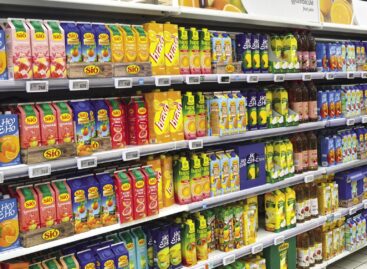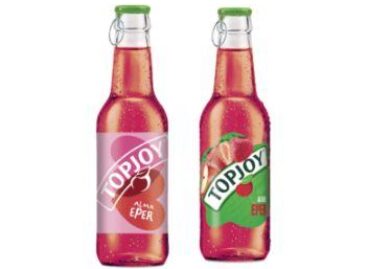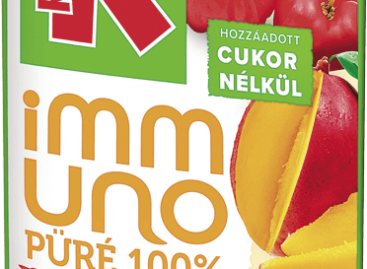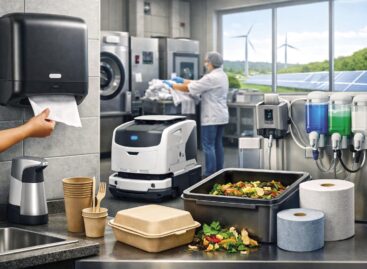Carbonated soft drinks and syrups riding the stormy waves of the market
In 2023 the carbonated soft drinks market continued to be affected by external factors such as high inflation, the changing tax environment, the introduction of the EPR fee, soaring raw material and energy prices, and the war in one of our neighbouring countries, which gradually killed the market’s momentum.
This article is available for reading in Trade magazin 2024/4

András Palkó
marketing director
Coca-Cola HBC
Magyarország
“Consumers felt the changes and they have started to modify their habits accordingly. As prices have increased, shoppers are more likely to buy lower-priced, private-label, large-sized products than before”,
says András Palkó, marketing director of Coca-Cola HBC Magyarország.
NIQ data reveals that the Hungarian carbonated soft drinks market in retail grew by 14.6% in value if compared to 2022, but it contracted by 10.3% in volume.

Ildikó Zubály
senior brand manager
Szentkirályi Magyarország
”Consumers prefer value for money products and retailers have also become keener to offer promotional prices, so manufacturers have sought to compensate for the price increases with favourable promotional offers”,
explains Ildikó Zubály, senior brand manager of Szentkirályi Magyarország.
Rapid adaptation
Coca-Cola HBC Magyarország’s expert reports that all the raw materials used in production – be it sugar, concentrate or even carbonation – have become much more expensive recently. The company was able to increase its market share in the carbonated drinks category by 1.7 percentage points last year. 2023 also saw the debut of more new flavours across the Coca-Cola, Fanta and Kinley brands, such as Coca-Cola Zero Cherry, Coke Creations Rosalia, Y3000, and the Kinley Pink Aromatic Berry variants or the special What The Fanta flavour. Coca-Cola kicked off 2024 with a bang, with the world premiere of Coca-Cola Creations K-Wave Zero, a limited edition Coca-Cola product inspired by the K-pop music world, launched in Hungary in February. On 1 January 2024 the government decree regulating the mandatory return of PET, metal and glass beverage packaging came into force. This is in line with the ambitions of Coca-Cola HBC Magyarország’s World Without Waste strategy to contribute to the recovery of 100% of the waste from the beverage containers they produce by 2030.
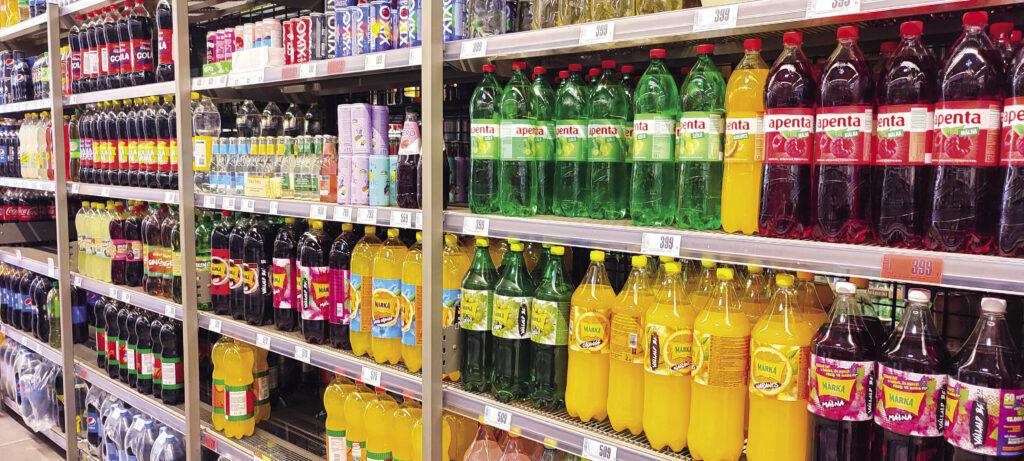
Multipacks’ importance have been growing
Strong potential in soft drinks for adults
At Szentkirályi Magyarország the CSD portfolio lost the most in terms of litre sales last year (-19%), largely because the size of Pepsi products reduced. At the same time value sales grew by 9%. In the adult segment of the carbonated category, the company’s Schweppes brand delivered outstanding results, with a 44% surge in volume sales, largely due to the launch of Pink Tonic.
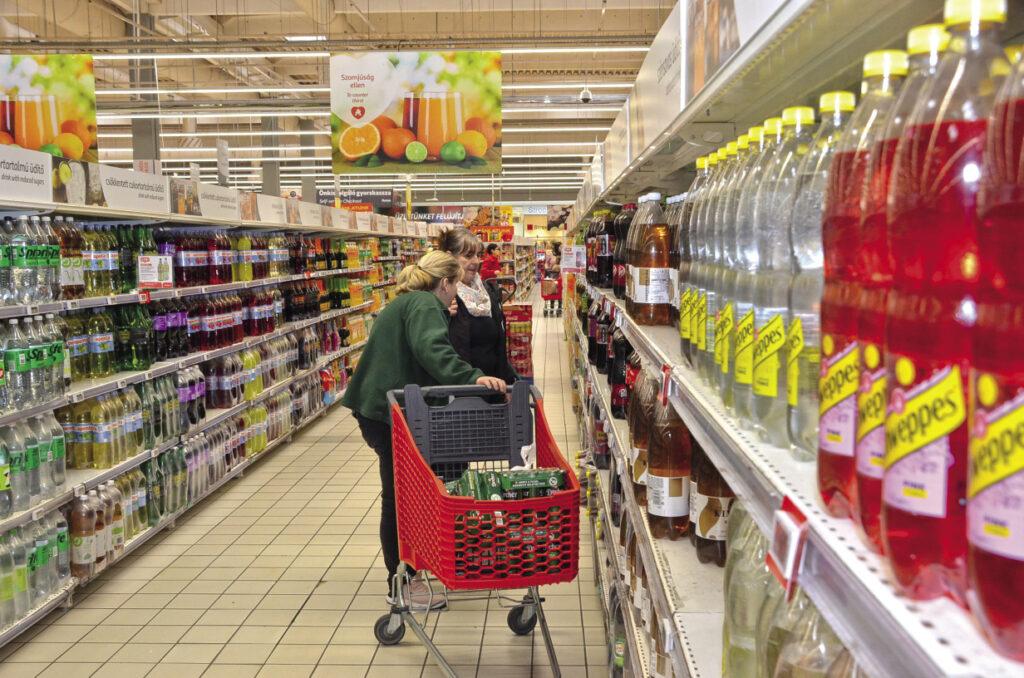
Share of the sugar-free segment in carbonated soft drinks continued growing last year

Márton Vecsei
senior brand manager
HELL ENERGY
Márton Vecsei, head of soft drink brands at HELL ENERGY Magyarország Kft. points out that the only way to compete in this saturated market is to stay up to date with new ideas and innovations, or if possible even be the leader when it comes to the dynamically changing consumer demands.
Horváth Adrienn
marketingigazgató
Márka Üdítőgyártó“Our research, experience and sales figures also confirm that although purchasing power is generally declining, demand for soft drinks – including carbonated soft drinks – doesn’t diminish”,
says Adrienn Horváth, marketing director of Márka Üdítőgyártó Kft.
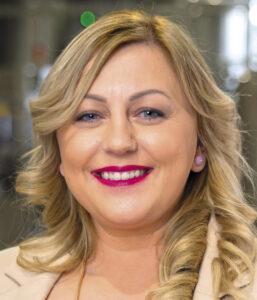
Eszter Homor
managing director
Art Water
“We see more and more health-conscious consumers who are looking for healthier soft drinks. Functional soft drinks are conquering the market, but there is a lot of misleading information indicated on these products”,
argues Eszter Homor, CEO of Art Water Kft.
An era of new innovations
The trump card of HELL ENERGY Magyarország Kft.’s XIXO brand is the consistently low consumer price, paired with high product quality. In addition to being free from preservatives and aspartame, XIXO carbonated soft drinks are made from carefully selected and high quality ingredients and packaged in BPA-free cans. Soon they will be adding a new range and several new flavours to the already colourful portfolio. The brand will continue to focus on the most successful XIXO carbonated range of 2023, Tutti Fruity soft drinks, which consumers can now find on store shelves in 3 flavours: Tutti Fruity, Tutti Fruity Apple and Tutti Fruity Cactus.
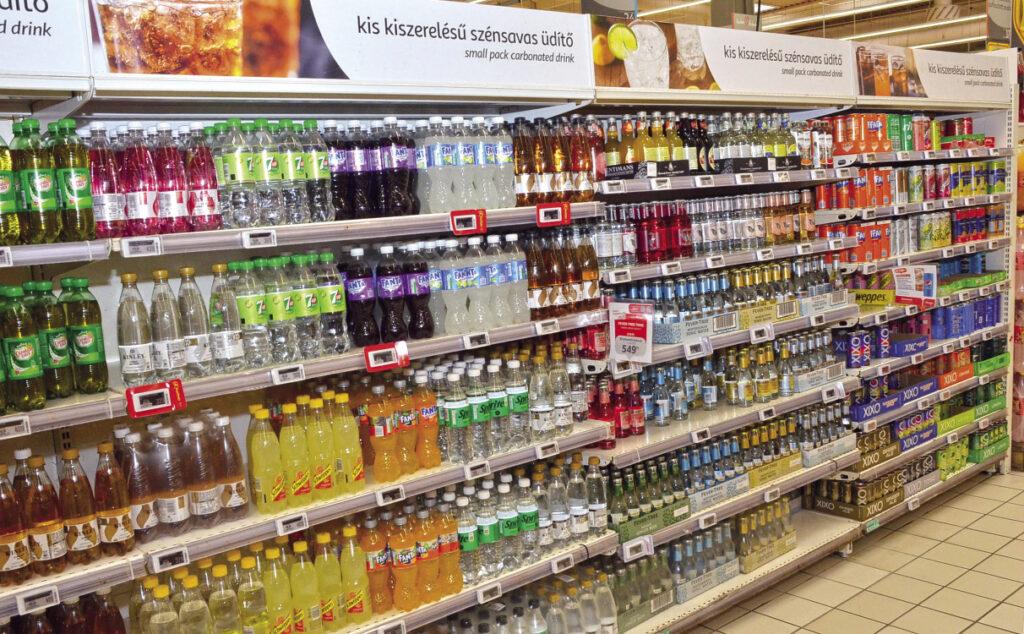
The EPR scheme, introduced last year, has significantly increased the tax burden on manufacturers, and consumers also feel the impact
Growing sugar-free portfolio

Patrícia Peres
brand manager
Maspex Olympos
Patrícia Peres, brand manager of Maspex Olympos Kft. points out that demand for sugar-free soft drinks is on the rise.
“In the Apenta portfolio 3 flavours are available in a classic, with-sugar version: raspberry, orange and grape. All three can also be found in shops in a light variant, with 0% added sugar, but we offer 5 other flavours too for those who don’t wish to compromise between calories and great taste”,
adds the brand manager.

Vilmos Várkonyi
group brand manager
Maspex Olympos
“Topjoy carbonated soft drinks are available in 330ml size in cactus, mango, watermelon and strawberry variants. The products are made without artificial sweeteners and preservatives. This spring the portfolio will be renewed and a new flavour will be added”,
informs , Vilmos Várkonyi, group brand manager of Maspex Olympos Kft.
Last year Art Water paid increased attention to carbonated soft drinks (Fizz Water and Bambi), which led to volume sales growth. The company’s plans for this year include getting into as many retail outlets as possible, even with in-out promotions, and they will also continue the in-store tasting sessions that have been tried and tested for years. //
Last year’s inflation set back fizzy drink sales
In 2023 volume sales of carbonated soft drinks decreased by 8%. Last year 92.8% of households bought a fizzy drink at least once (YA 92.2%), but only on average 30.4 times (YA 31.5), and the volume purchased per buying occasion was only 4 litres (YA 4.2 litres).


Albert Szőke
senior consultant
ConsumerPanel Services
Sales of carbonated soft drinks didn’t decrease as much as the other non-alcoholic cold drink categories, because they gained volume from other segments, especially fruit drinks. Two general FMCG trends have prevailed in the fizzy drink category too: the growing importance of promotions and further discounting. In 2023 36% of volume sales was realised in promotion (YA 32%). Discount supermarkets’ volume share grew to 41.6% (YA 38.3%) and this increase in market share came from hypermarkets and supermarkets. //
Transformation in the syrup market
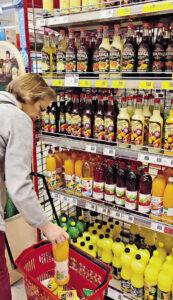
Syrups with 50% fruit content have seen a significant market growth
The syrup market fully transformed by 2023. Gramex 2000 Kft. exclusively produces private label syrups. So far the company’s flagship has been “flavoured”-type syrups in 2-litre size, which have lost a big market because of the public health product tax (NETA), but Gramex’s 50% fruit syrups have produced significant market growth. “We are facing a challenging year, as we have to replace all labels on every product, which is not only a big task for manufacturers, printers and distributors, but also a significant additional cost”, informs Márta Z. Molnár, sales director of Gramex Drinks.

Istvánné Mácsi
president-director
Trizsi Ízek Start Social Cooperative
Istvánné Mácsi, president-director of the Trizsi Izek Start Social Cooperative opines that even if product prices rising, consumers aren’t turning to cheaper products, but buy less from quality products. In the company’s experience artisan, home-made syrups are in demand.
“There are more and more lemonades and syrups available to consumers. Pre-mixed, ready-to-drink and takeaway syrup drinks are also in popular”,
says the president-director.
Demand is the biggest for their raspberry, elderflower and lavender syrups in 0.5-litre size. //
Related news
A change of era in the glass
🎧 Hallgasd a cikket: Lejátszás Szünet Folytatás Leállítás Nyelv: Auto…
Read more >Topjoy Apple-Strawberry
🎧 Hallgasd a cikket: Lejátszás Szünet Folytatás Leállítás Nyelv: Auto…
Read more >



